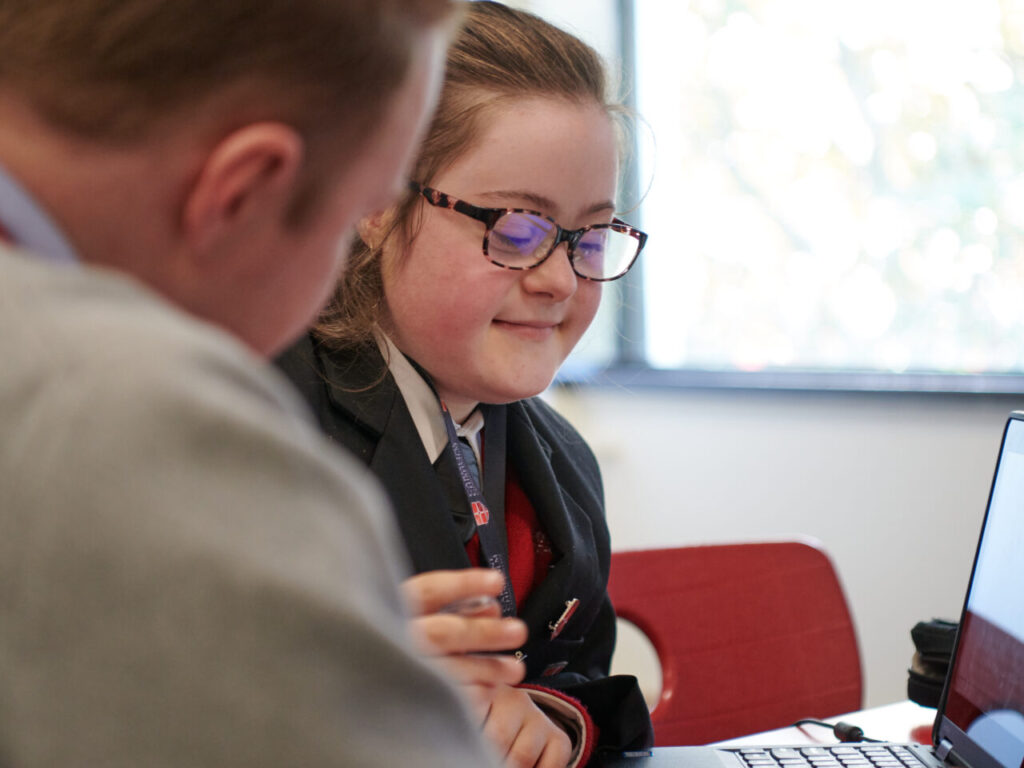Authentic Inclusion in Schools:
2026 Program
Join us for this essential professional development conference and learn practical ways to create the foundations for genuine inclusion at your primary or secondary school.
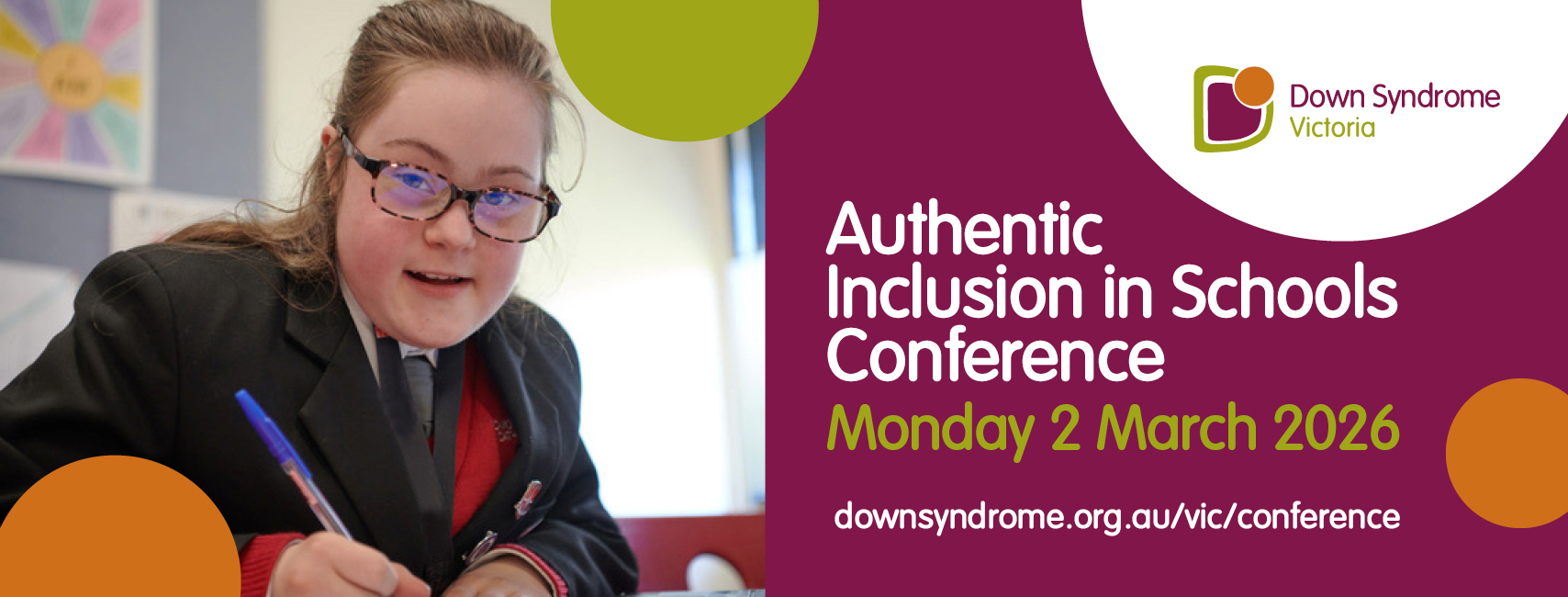
Authentic Inclusion in Schools 2026 will present a range of practical strategies from a series of leaders in the education sector, supporting educators to better include and engage all students, creating genuine and meaningful inclusion in schools.
In 2024, 100% of conference attendees either agreed or strongly agreed that participation in Authentic Inclusion in Schools improved their confidence supporting a student with Down syndrome.
Program:
8:15am – 8:45am
Registration
Tea and coffee upon arrival.
8:45am – 9:00am
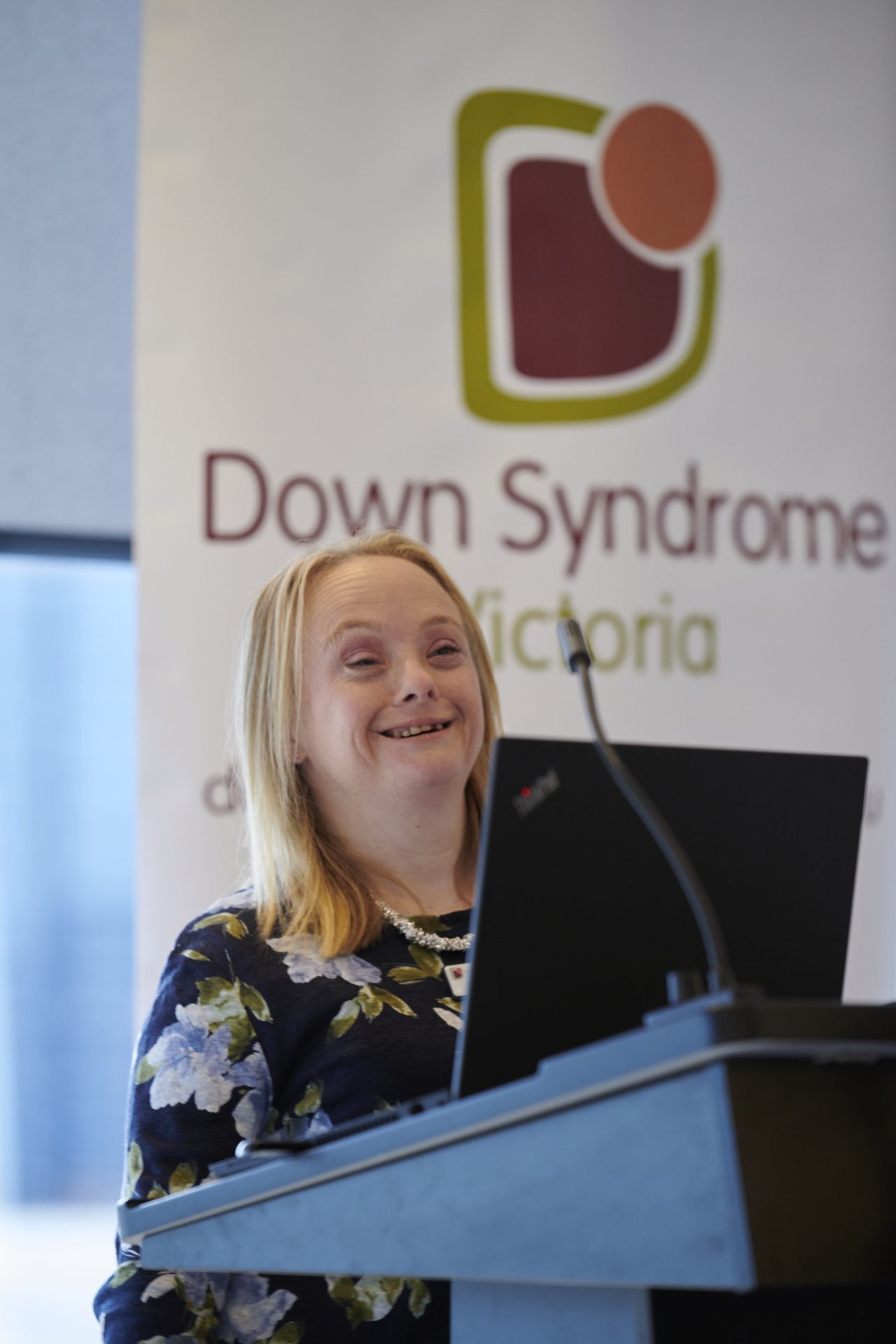
Welcome and introduction
Daniel Payne – DSV CEO, Ro O’Dwyer – DSV Education Manager and Kath Mansour – DSV Advisory Network Chair.
9:00am – 10:00am
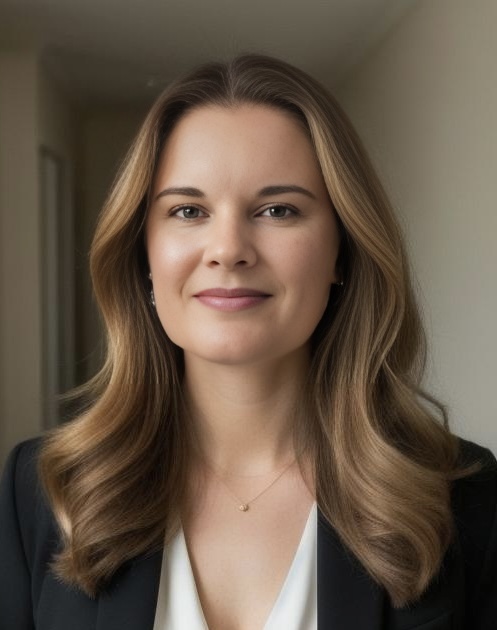
Universally Designing Curriculum and Assessment
Loren Swancutt, National Convenor of the School Inclusion Network for Educators (SINE), experienced teacher, school leader, and education consultant.
Ensuring equitable access to the grade-level curriculum is vital for providing all students with high-quality, meaningful learning. This requires intentional planning, inclusive practices, and evidence-based strategies to remove barriers. This session explores the knowledge, understandings, and practices that enable all students — including those with complex learning profiles — to access and engage with grade-level curriculum and assessment alongside their peers in inclusive classrooms.
Key learnings:
- define equitable, high-quality learning experiences for all students
- explore key elements of inclusive curriculum provision
- examine how national and state curricula support this approach
- learn how to plan for inclusive, grade-level teaching and learning using universal design principles and curriculum adjustments
10:00am – 11:00am
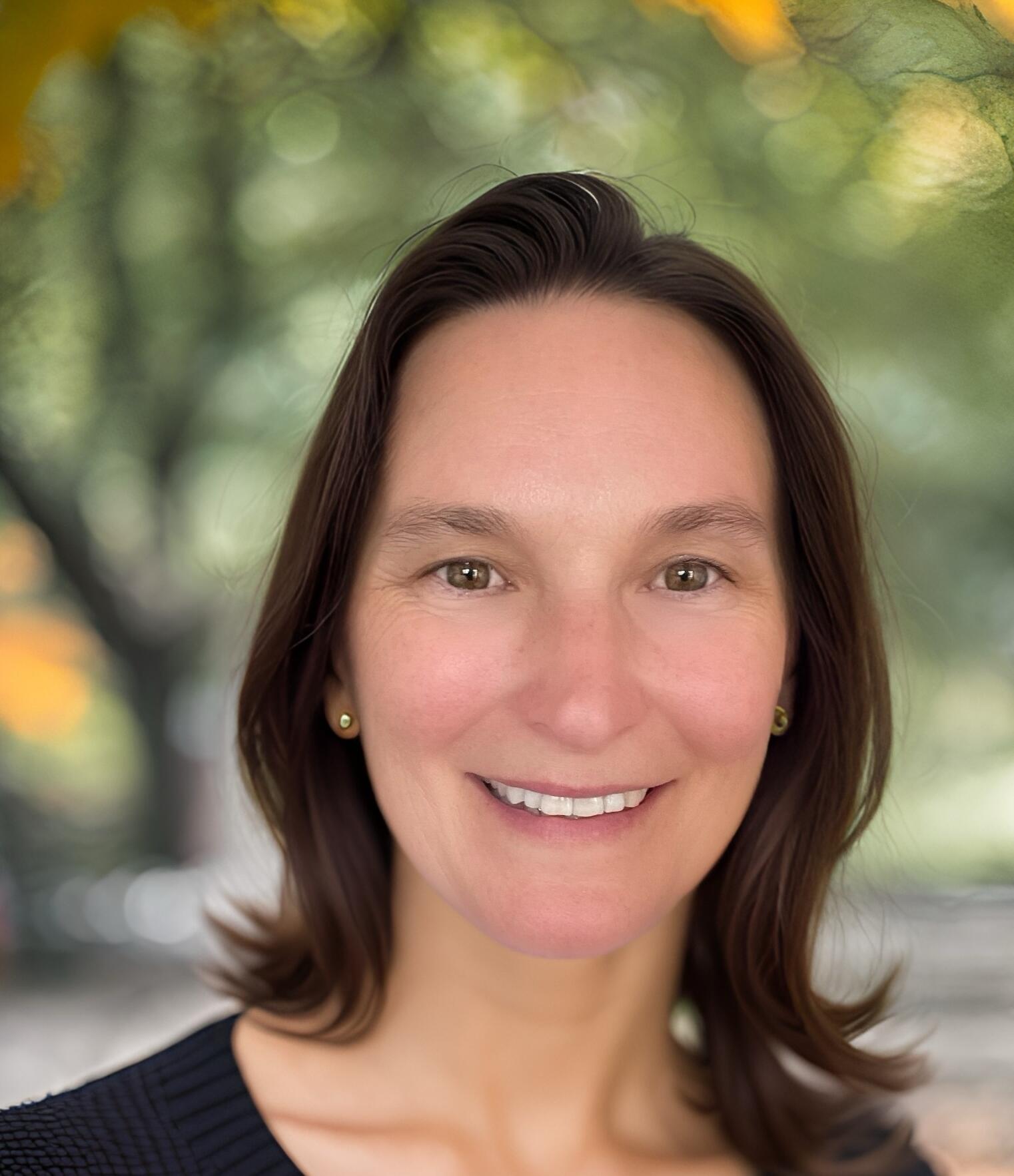
Turning the page: Pathways to lifelong reading for all!
Associate Professor Kathy Cologan: Associate Director Children’s Voices Centre, Charles Sturt University.
Even in an age where technology almost fills our waking moments, there is still nothing quite like picking up a book and settling in for a read. Learning to read provides us with key opportunities to connect with our world and each other, across time and space.
Through this presentation I will explore pathways to reading for those of us with Down syndrome. In doing so, I will challenge some lingering misunderstandings about learning to read, and share ideas for personalised, meaningful educational experiences. I will address the importance of presuming competence and fostering a love of reading through accessible materials and engaging teaching methods that connect reading with real-life events. I will explore ways to get started with learning to read at any age, as well as strategies for supporting ongoing reading development as students move through learning to read and reading to learn.
Within the session I will highlight strategies for making phonics instruction accessible and clarify common misunderstandings about language and reading comprehension. I will consider approaches for creating inclusive learning experiences, including physical adaptations to materials and the use of technology and multisensory resources.
Finally, I will invite reflection on the role of reading within broader educational contexts, underscoring the importance of continuous literacy development from early childhood through adulthood, and the potential for unlimited learning outcomes and the great joy of reading through rich, varied, and ongoing engagement with texts.
11:00am – 11:20am
Morning tea
11:20am – 12:05pm
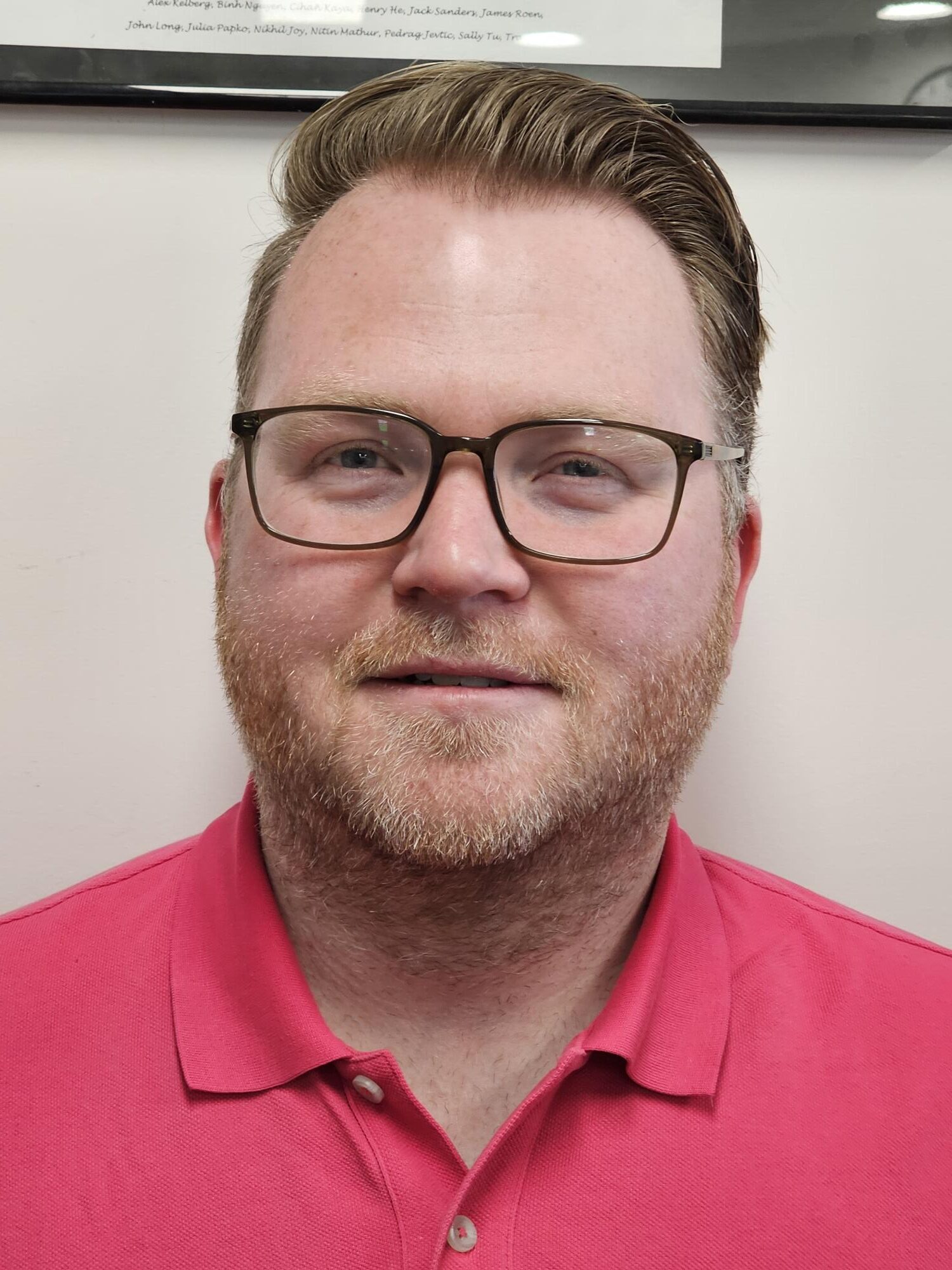
Getting started: A look at how Key Word Sign can support communication
Nick Drover: a special education teacher with a strong passion for Augmentative and Alternative Communication and literacy teaching for students with disabilities. Nick has been presenting Key Word Sign for over 10 years and also serves as the treasurer for Key Word Sign Victoria.
Key learnings:
Key Word Sign is an augmentative communication tool that provides support for communication for people with disabilities. This presentation will examine some contemporary research, describe the principles of Key Word Sign, learning some basic signs and explore ways we can implement signing in everyday life.
12:05pm – 12:50pm
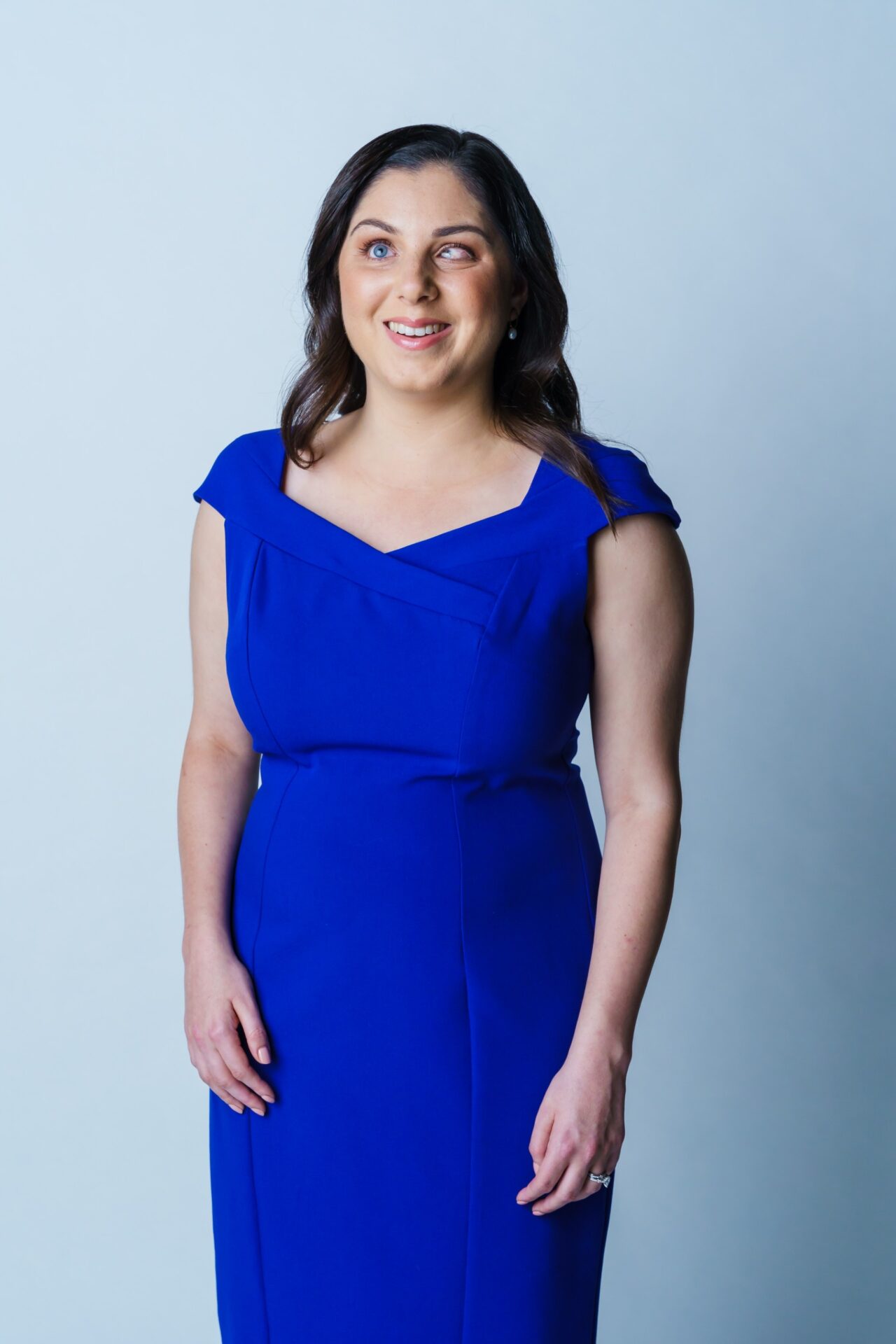
Insights from Nas Campanella
Nas Campanella, National Disability Affairs Reporter, ABC
Nas Campanella is the ABC’s national disability affairs reporter.
Nas started her career at the ABC as a cadet journalist in Sydney in 2011 before working as a regional reporter in Bega on the New South Wales far south coast. She then spent seven years working as a newsreader, reporter and senior producer for triple j and other ABC platforms. Nas has also undertaken projects with ABC International Development, running initiatives for people living with disability across the Pacific.
Nas lost her sight when she was six months old. Nas also has a sensitivity condition called Charcot-Marie-Tooth which means she can’t read Braille.
Current work:
Nas also works as an MC and public speaker, presenting at schools, conferences and charity fundraisers on topics such as inclusive education, adaptive technology, accessibility and supporting women to climb the corporate ladder. Nas has supported young people with vision impairments to transition into mainstream schooling. She also works as a mentor to people with disabilities and mental illness.
Her strong interest in travel has seen her publish articles with Lonely Planet and the Sydney Morning Herald. She’s also given advice on accessible travel to members of the tourism industry.
In 2022 Nas became a mother for the first time and this experience has empowered her to share her journey of preparing for motherhood when you also live with disability including the supports and services available, the pregnancy journey and overcoming prejudice.
In 2016 Nas was part of a Disability Empowerment Skills Exchange in Fiji where she worked in a media communications and advocacy role with the Spinal Injury Association in Suva. During the month-long exchange, Nas devised a social media strategy for the organisation, assisted in the design and launch of a disability awareness training program for the United Nations and ran workshops in public speaking, press release writing and interview skills.
12:50pm – 1:45pm
Lunch
1:45pm – 2:00pm

DSV’s Education Support Service overview
Key learnings:
- What is DSV’s Education Support Service (ESS)?
- What support can DSV provide to your school?
- What is the DSV Education platform and how can your school access it?
2:00pm – 3:00pm
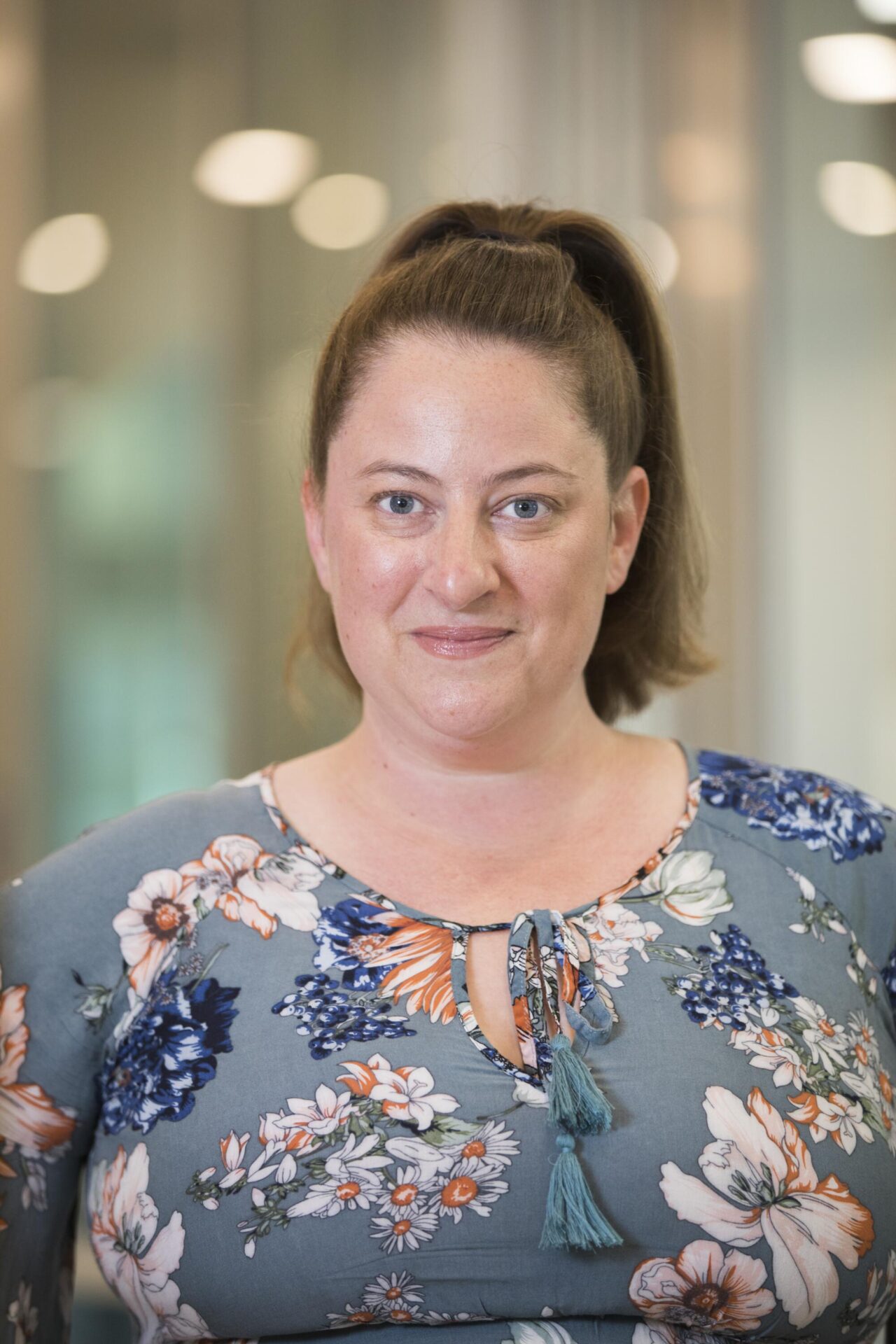
Nurturing strengths and belonging: Effective behaviour support for learners with Down syndrome in schools
Dr Erin Leif: Associate Professor in the School of Educational Psychology and Counselling, Monash University.
Students with Down syndrome bring unique strengths, perspectives, and contributions to their classrooms. When schools adopt a proactive and strengths-based approach to behaviour support, they not only reduce barriers to learning and participation but also create environments where every learner can succeed and belong. This presentation explores evidence-informed practices for supporting positive behaviour in school settings, with a focus on learners with Down syndrome. Grounded in the principles of Positive Behaviour Support and Multi-Tiered Systems of Support, we will examine strategies that build on students’ interests, enhance communication and social connections, and promote self-determination. Through case examples and practical tools, participants will gain insights into how to design capable environments that empower students with Down syndrome to engage fully in their learning and community.
3:00pm – 3:45pm
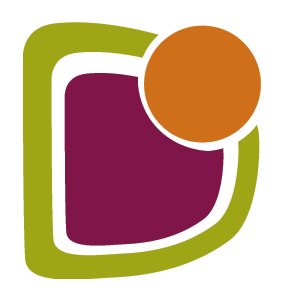
Thoughts on education panel
Including three parents and three students.
3.45pm – 4:00pm
Reflection, wrap up and prize draw
4:00pm
Conclusion of event.
Thank you for your attendance and your commitment to making inclusive education a reality for all children.
This [conference] was wonderful. I really appreciate the fact this was about Down syndrome, however so much stuff was applicable to all student with learning/behavioural difficulties. This was terrific – I have so much to take back to my school.
Educator
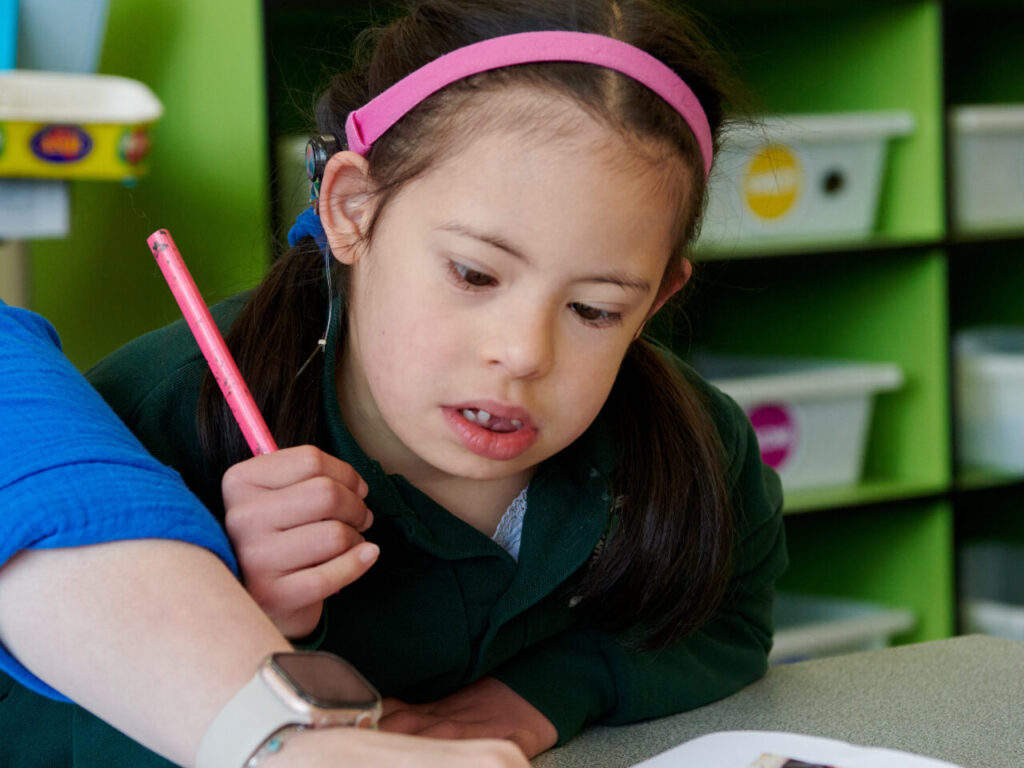
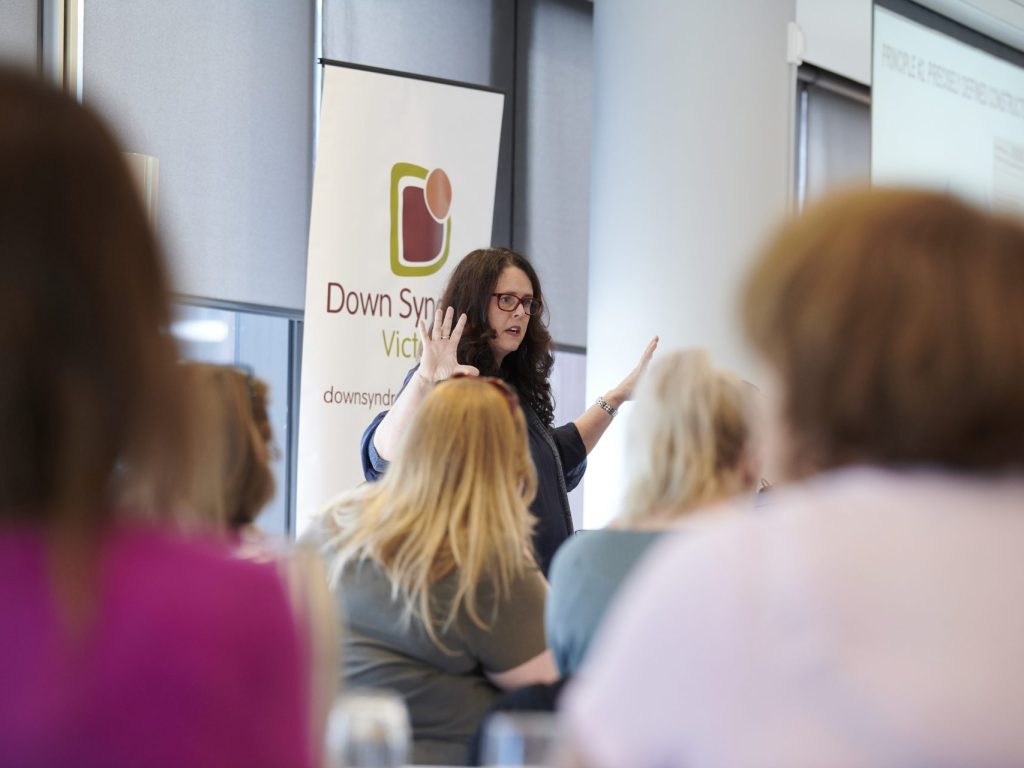
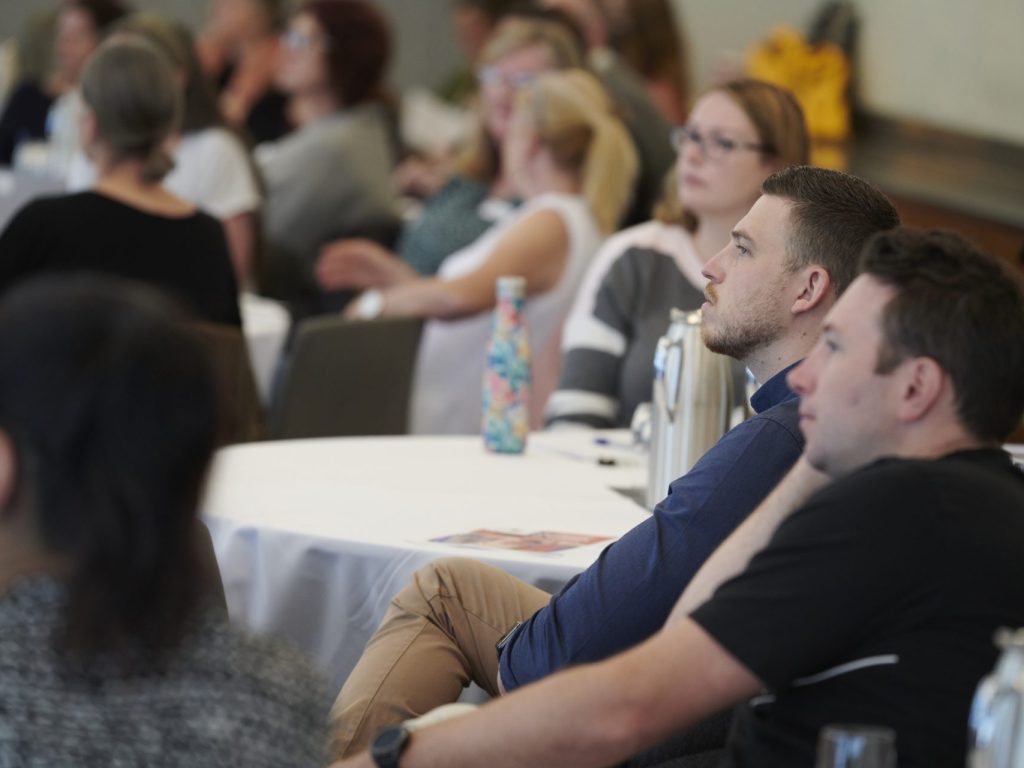
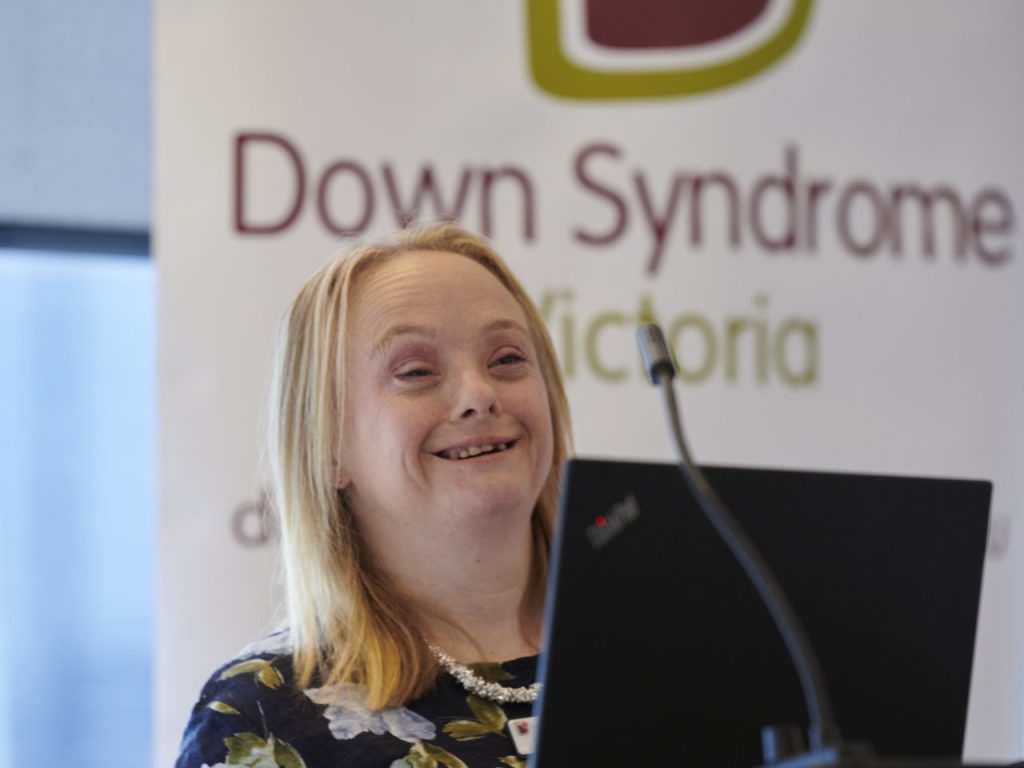
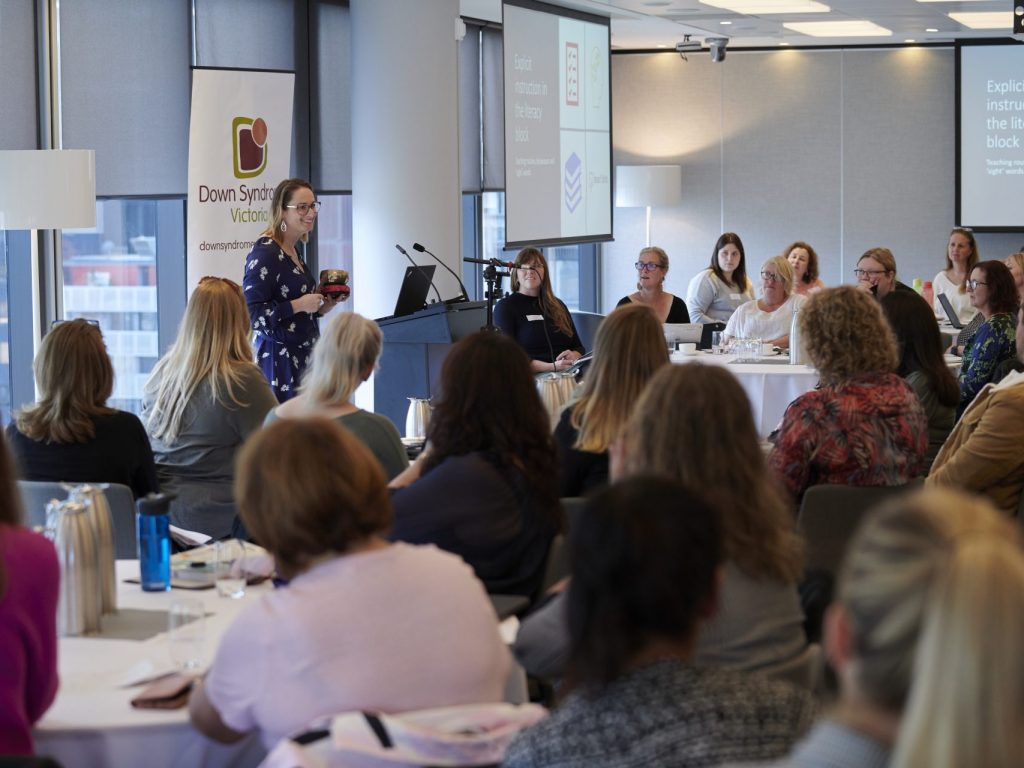
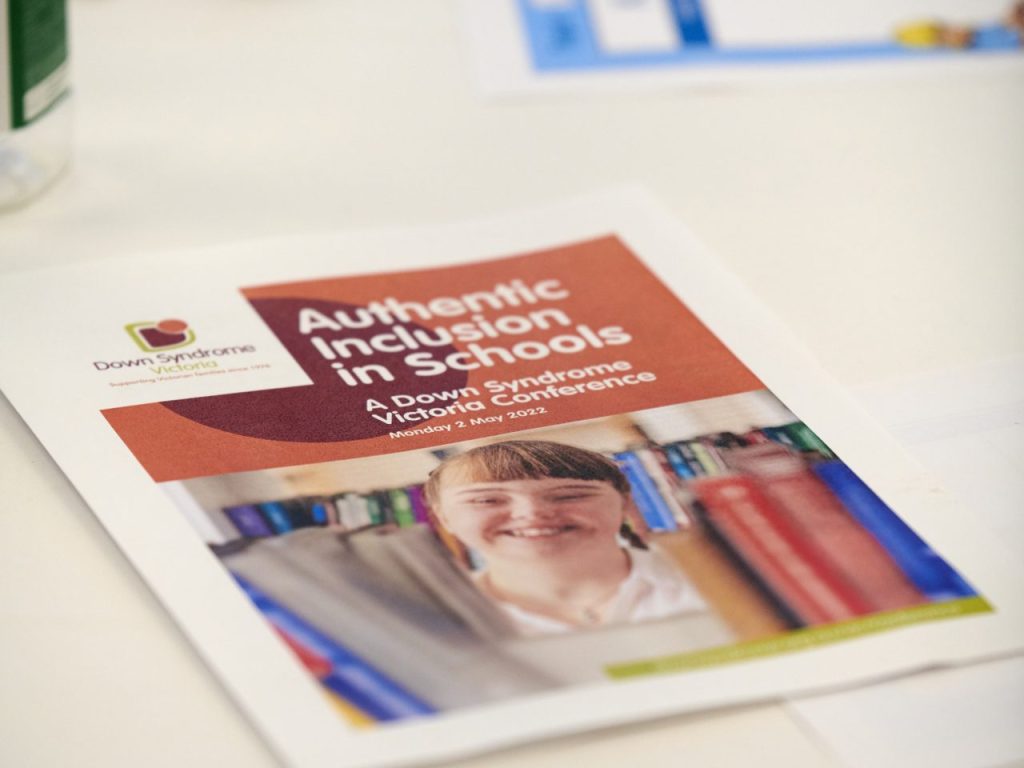
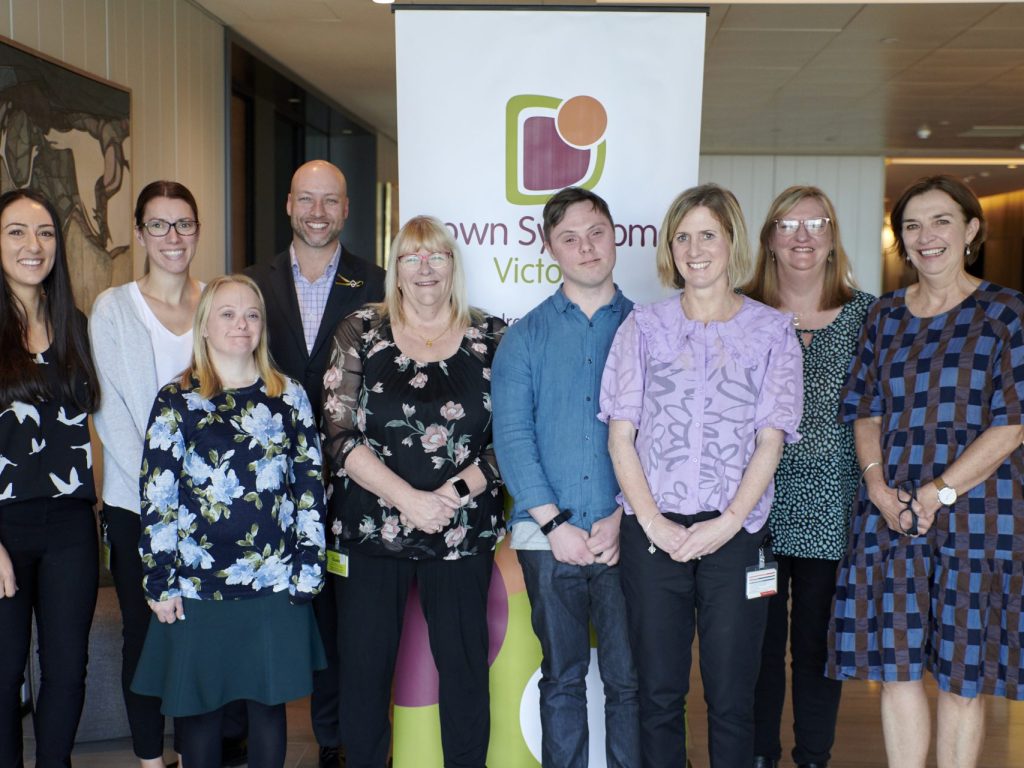
Attendance at this conference can contribute to your VIT professional development.
For more information phone 9486 9600 or email education@dsav.asn.au.
To learn more about our Education Program and other opportunities for support and involvement, click here.
With grateful thanks to our supporters:
Major Partner: Department of Education and Training

